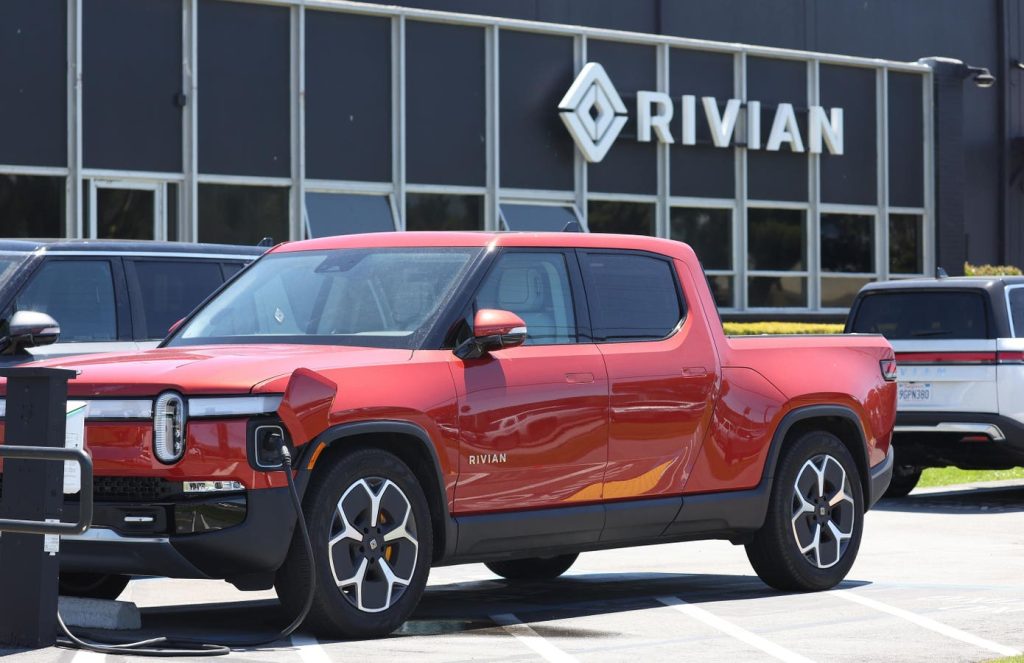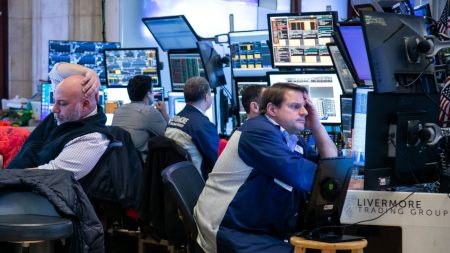Volkswagen’s $5 billion deal with Rivian received a positive reception although some analysts worried that VW’s huge capital investment spending plan might be harder to control, especially given the company’s weird ownership structure.
The deal sets up a 50-50 joint venture under which VW gains an electric vehicle operating system and the engineering required to operate it, while Rivian gets cash and the German giant’s production knowhow.
“For Volkswagen, the deal might be just in the nick of time to save its floundering transition to EV’s” said Conrad Layson, analyst for Chester Springs, Pennsylvania-based Auto Forecast Solutions.
“The joint venture could be an example for success in the rising number of collaborations between (manufacturers) in the transition to EVs,” Layson said.
Investment bank Morgan Stanley said VW investors have been looking for evidence its huge capital spending plans were under control.
“We think the market could view this deal as a sea change for VW capital allocation and will take the news positively. While new products under the joint venture will take several years to hit the road, VW plans to utilize Rivian’s existing electrical architecture and software platforms, which may accelerate Volkswagen software competitiveness and reduce Cariad costs over time,” Morgan Stanley said in a report.
VW’s software subsidiary Cariad has been an expensive problem from the start of its EV program. According to Moody’s Ratings, Cariad lost €2.4 billion ($2.6 billion) last year and €2.1 billion ($2.3 billion) in 2022.
“As yet there is no evidence that the €170 billion ($183 billion) 2025-2029 capex and R&D spending plan has been reduced here. Reducing this number is ultimately the key to a higher VW share price, we believe,” Morgan Stanley said.
Moody’s Ratings agrees VW’s investor perception has been clouded by its ownership structure.
“These (risks) are exemplified by the highly complex group structure, with multiple stakeholders, including the family owners, the German State of Lower Saxony and workers unions, and the existence of minority shareholders in key businesses like Porsche, Traton (trucks) and the joint ventures in China,” Moody’s Ratings said in a report on VW.
Moody’s Ratings was positive about the Rivian deal too.
“Subject to significant execution risks, the Rivian transaction is a positive in our view as it is an attempt to reduce software development costs and time to market of new models. The $5 billion cash outflow expected during 2024-26 can be absorbed by VW’s sizeable cash balance. VW indicated that it might finance part of the $5 billion investment by divestment of non-core assets,” Moody’s Ratings said.
Even social media likes the deal, according to data and analytics company GlobalData.
“This partnership is perceived (by social media platform “X”, formerly Twitter) as mutually beneficial wherein Volkswagen secures access to Rivian’s advanced software-defined vehicle architecture while Rivian obtains essential capital to sustain its operations and support future development,” GlobalData said.
Some worried about the longer-term sustainability of the deal. They perhaps remembered the parternership deal with Suzuki of Japan, which received plaudits at first, but failed.
“Influencers view the VW-Rivian joint venture and investment as a critical lifeline for Rivian, averting potential bankruptcy and enabling expansion into new vehicle segments. They emphasize that the financial injection will positively impact Rivian’s production capabilities and market position, potentially paving the way for future collaborations and shared platforms with Volkswagen’s new electric SUV lineup. However, some influencers remain uncertain about the long-term success and sustainability of the partnership,” GlobalData analyst Shreyasee Majumder said.
Auto Forecast Solutions’ Layson said Rivian’s latest operating systems cut the number of electronic control units (ECU) to seven from 17, eliminating 1.6 miles of wiring harness and cutting production costs. All seven communicate with each other. Traditional manufacturers use between 70 to 80 domain controllers and individual chips. None communicate with each other directly, slowing system response and eating into network capacity.
“The limited initial scope of the agreement keeps each partner focussed on achievable goals and minimizes the possibility of mission creep as the partnership develops,” Layson said.
When VW and Rivian announced the deal they said it would allow Rivian to invest in developing less expensive and smaller R2 SUVs set to hit the market in 2026. Rivian currently sells the R1S SUV and R1T pickups. A joint venture company will license existing software for use by both companies. The R2 will be the first to use it. VW brands including Audi, Porsche, Lamborghini and Bentley will follow.
According to Reuters, Rivian has been losing nearly $40,000 for every vehicle it sold.
Analysts have said the deal would take the pressure off Cariad and complement VW’s 2023 China arrangement with XPENG. XPENG would underpin VW’s China” strategy, the Rivian deal will accelerate software developments for VW western geographies, U.S. and Europe.
Read the full article here










